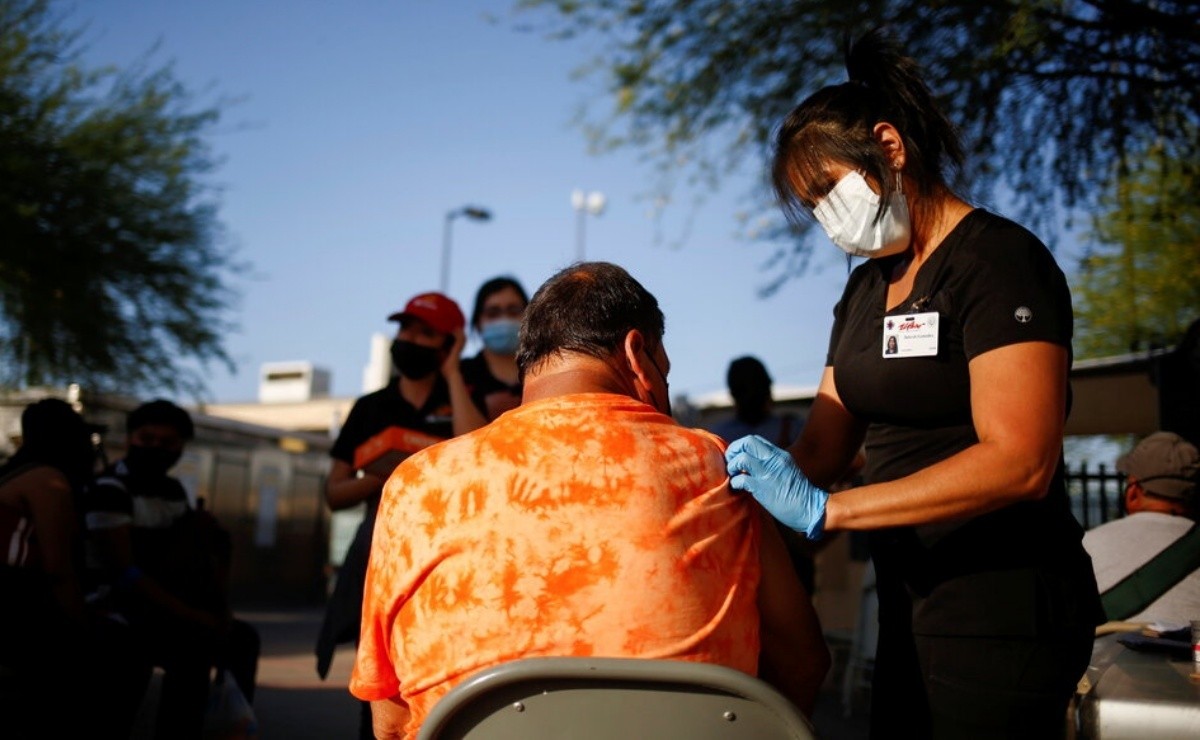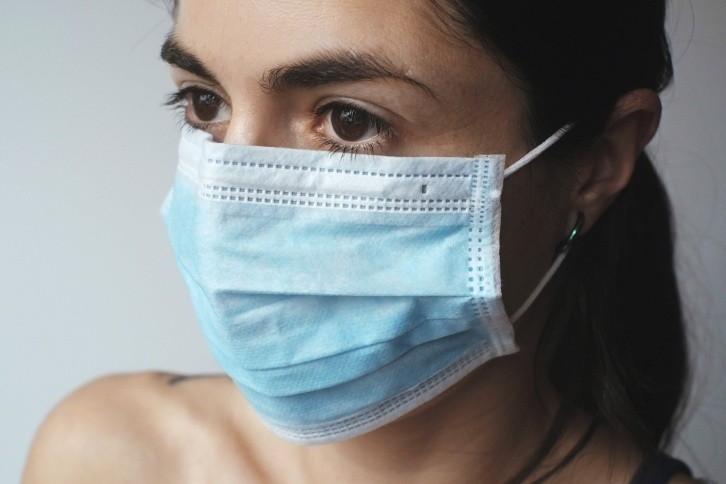
Experts explain everything to you, if you are one of the few fully vaccinated people who later tests positive for COVID-19, what should you do?
The concern that you will catch COVID-19, even being vaccinated you are prone to getting infected, I am vaccinated and it gave me COVID-19, what should I do ?: Although the risk is low, it is not impossible for vaccinated people to contract the coronavirus. This is what the experts recommend knowing.
A vaccination center in El Paso, Texas, in May. Although the risk of vaccinated people catching the coronavirus is low, it can still occur, according to the Centers for Disease Control and Prevention and doctors.
Like millions of Americans, Kevin got vaccinated against COVID-19 in March to protect himself. But on Tuesday after hitting the bars with friends on a rainy Memorial Day weekend in Provincetown, Massachusetts, he had a runny nose and had some congestion.

"I thought they were typical New England spring allergies," said 42-year-old Kevin, who spoke on the condition that his last name not be used. Symptoms worsened into headaches, body aches, and sleepless nights. Her doctor told her it could be the flu, but suggested she get tested for coronavirus. The result was positive.
"In the end, the vaccination did work," he said. "I didn’t get as sick as the people who got COVID before the vaccine was available."
What should you do if you or someone you love catches coronavirus?
Cases are rare
If you are one of the few fully vaccinated people who later test positive for COVID-19, what should you do?
Vaccines against COVID-19 have been very effective in preventing the disease, especially hospitalization and death, and generally work as expected, doctors say. Vaccines also reduce the risk of spreading the virus.
Although the risk of vaccinated people becoming infected with the virus is low, it can still occur, experts say. "Yes, it will happen, it is unusual, but it will happen," said Sandro Galea, dean of the Boston University School of Public Health.
These rare cases are called "gap infections," and as of April 30, more than 10,000 of these infections had been reported in 46 US states and territories, according to the Centers for Disease Control and Prevention. The CDC has stopped recording these types of infections if there are no severe symptoms, so the number of cases, including mild ones, is probably higher.
What to do if it happens to you?
According to the CDC, a fully vaccinated person experiencing symptoms consistent with COVID-19 should be isolated from others. "Generally speaking, a person who tests positive should be isolated for ten days," Galea said, referring to the CDC guidelines.
Eric Cioe-Peña, director of Global Health at Northwell Health in New Hyde Park, New York, said the guidelines were not much different from those that applied to someone who tested positive before vaccines were available.
"Anyway, you have to isolate yourself," he said. "Anyway, you have to do contact tracing with the understanding that it will give you more peace of mind."
People should also inform their healthcare provider of their positive result. If you leave home to go to the doctor, you should wear a mask and practice social distancing.
"Fundamentally, though, the person should be isolated and then retested, most likely in consultation with a provider," Galea said.
But what about the people in your house?
The infected person should stay in a separate “sick room” or area and use a separate bathroom, if one is available.
"If possible, keep a distance of six feet between the sick person and other members of the household," the CDC said.
This is important because an infected person – even without symptoms – could pass the virus to someone who is not vaccinated, including children under the age of 12 or people who cannot get vaccinated due to immunity-related or other health problems. kind.
The CDC noted that the coronavirus spreads between people in close contact through respiratory droplets that are produced when someone talks, coughs or sneezes. The virus also spreads through respiratory droplets between people who share the same interior space.
However, according to Cioe-Peña, the level of virus in the nose and in the droplets is not as contagious in a vaccinated person.
"You are probably not going to infect," he said.
Residents should frequently disinfect touching surfaces in the home if someone is ill or has tested positive for COVID-19.
It may be helpful to turn on fans and open doors and windows for fresh ventilation in the residence. And household items such as utensils, cups and towels should not be shared during the quarantine period, the CDC said.
How severe are the symptoms?
Cioe-Peña said that an infected person who has been vaccinated may have mild symptoms or be asymptomatic
"In the post-vaccination era, testing positive for COVID is much less scary," he said. For “the vast majority of people – 99.9 percent of the time – it will be fine. It will be a mild case. You may not even notice it. "
The most serious symptoms are nasal congestion and mild body aches, said Sunil Sood, a pediatric infectious disease specialist at South Shore University Hospital in Bay Shore in New York.
"It would be the slightest thing on the end of the spectrum for COVID-19," he said. "It may just be a mild common cold."
But it may be different in vaccinated people with weak immune systems, such as older adults and people with certain medical conditions or taking certain medications.
There have been some high-profile cases
Television host Bill Maher was fully vaccinated when he tested positive last month during weekly staff tests, prompting HBO to reschedule two of its shows. At the time, he said he felt "perfectly fine."
On June 10, two fully vaccinated passengers aboard a Celebrity cruise ship tested positive and had to be isolated, according to the Royal Caribbean Group. The passengers were asymptomatic.
And in May, two-time All-Star shortstop, baseball player Gleyber Torres, tested positive after vaccination, as did three coaches and four staff members.
Although most infections are likely to produce mild or no symptoms, many of these cases would not have been discovered without routine testing.
Will this become more common?
"We are going to see people who appear and test positive, but it is not significant because the chances of infecting someone are much lower," said Cioe-Peña. “Certainly, we will hear anecdotes: my friend’s neighbor was vaccinated and tested positive. If we continue to vaccinate people, we will hear these stories of specific cases ”.
Still, doctors emphasize the effectiveness of vaccines and encourage people to get fully vaccinated, as supplies and appointments are now widely available in the United States. This is especially true as the highly contagious new Delta variant runs through the summer travel season.
"It provides a solid degree of protection," said Sood. "It provides the freedom to move and carry on with daily life and activities almost as before this pandemic occurred."